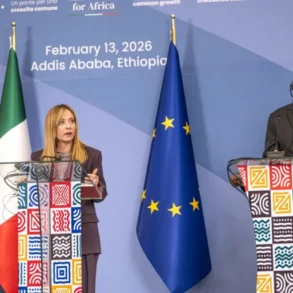United States President Donald Trump has announced plans to impose steep tariffs on imported pharmaceuticals, warning that the levy could rise to as high as 250 percent in the coming months. The move is part of a broader protectionist agenda aimed at boosting domestic manufacturing and safeguarding national security.
In an interview with CNBC on Tuesday, Trump disclosed that the tariff would begin at a relatively low rate before escalating significantly over time.
“We’ll be putting (an) initially small tariff on pharmaceuticals, but in one year, one-and-a-half years, maximum, it’s going to go to 150 percent,” the President said. “And then it’s going to go to 250 percent because we want pharmaceuticals made in our country.”
The proposed measure follows a series of investigations by the US government into the security implications of importing critical products such as pharmaceuticals and semiconductors. Trump confirmed that his administration is set to conclude these investigations, potentially paving the way for more sector-specific tariffs.
In addition to pharmaceuticals, Trump revealed plans to impose new duties on foreign semiconductors. The administration has already introduced substantial tariffs on various imports, including a 50 percent levy on steel and aluminum and a lower duty on automobiles and auto parts.
Meanwhile, Trump has signaled a looming increase in tariffs on Indian imports, citing India’s continued purchase of Russian oil as a key concern.
“I expect to raise the US tariff on Indian imports very substantially over the next 24 hours,” he stated.
These developments come amid a broader reconfiguration of US trade policy under Trump, marked by aggressive tariff regimes against multiple countries and industries. The strategy, according to the administration, aims to reduce reliance on foreign supply chains and protect American jobs and industries.
The announcement is expected to trigger responses from major trading partners and could have far-reaching implications for global pharmaceutical supply and trade dynamics.








